The Institute of Public Health is trying to combine in a sustainable way the knowledge of the bio-medical field with economy, law, management, sociology and psychology in its educational program.The attainment of high quality equilibrium requires the development of a multidisciplinary scientific environment and a mutual interest in the subject matter, which is so unique in the Polish academic tradition. The challenge facing the executors of such a sustainable educational program not only calls for effort but also creates new research perspectives. Master of Public Health studies were launched at the Institute of Public Health in 1997. The curriculum reflects to a great extend the former, many-year experience of postgraduate Public Health training and strong pursuit of the IPH academic staff provide the education which meets the criteria set up by the Association of Schools of Public Health in the European Region (ASPHER).
PUBLIC HEALTH STUDIES GRADUATE PROFILE:
After finishing the Public Health studies, a graduate should assume the role of an organizer and executor of health care programs at the population level with the attention turned to such activities as:
- Health promotion and health education
- Early disease diagnosis
- Elimination of social effects of disease
- Multi-aspect cost-benefit analysis of programs and strategies of overcoming diseases
Bachelor of Public Health studies:
The goal of bachelor studies is providing the education, which enables undertaking the following professional positions and vocational life-long training trends:
- executor of health care programs
- health educator manager and trainer of teams executing the tasks within the health care programs staff
- member of organizational health care units
- staff member of health promotion and prevention departments in administrative health care units
candidate for Master of Public Health studies /Graduate of Bachelor of Public Health studies should possess the following knowledge and skills:
- knowledge of basic medical problems related to health problems
- knowledge of health care system knowledge of basics of law, economics and management
- knowledge of basics of social sciences
- knowledge of research methodology
- basic knowledge related to health promotion issues
- ability to search and use scientific literature ability to share knowledge with others
- ability to react to the progress in knowledge and changes in the health care system
- ability to work in interdisciplinary teams
- ability to use a foreign language
ICT skills Master of Public Health studies:
The goal of Master studies is providing education which enables undertaking of the following positions and vocational life-long training trends:
- Member of teams developing health care programs
- Executive manager of teams carrying out health care programs
- Manager of organizational health care units
- Manger of health promotion and prevention departments in administrative health care units
- Candidate for postgraduate training in the field of epidemiology, economics, health care management, journalism, education etc.
Graduate of Master of Public Health studies should possess the following knowledge and skills:
- Knowledge related to management, organization and financing of health care units basic
- knowledge related to labour and civil law
- knowledge related to research methods in Public Health Specific
- knowledge about the essential health problems and their social effects
- Knowledge of related to ethics in health care
- Ability to create/develop program actions for health care based on evidence-based medicine and policy.
- Ability to determine the state of art with respect to specific health problems based on critical review of literature
- Ability to design and carry out scientific research for the enlargement of
- Ability to organize activities aiming at the improvement of health status of populations incorporating their effectiveness control
- Ability to manage
- Ability to organize and mobilize interdisciplinary teams
Potential employment market for the graduates of Public Health studies:
The basic premise, which is considered in the development of the educational program, comes from the definition of the current and past job market requirements. The increasing fluctuation with respect to the demand for various skills and competences is reflected and expressed by the employers in various job advertisements. It is less likely that an employee would spent all his professional life in the same institution, it is even less likely that the employee would have the same occupation. Our graduates have to be prepared to work in the health care sector and deal with public aspects of health also regardless of their future employer. They can use their knowledge and skills independently what should be encouraged by the advancement of the profesionalisation of Public Health. Regardless of theoretical definitions of Public Health and changes on the job market the scope of its activities can be defined by the institutions, which are considered to be characteristic of its specificity. Such institutions belong to the Public Health infrastructure with the current institutional configuration and spheres of their mission (declared or carried out), which will determine the concept of Public Health existent in the Polish health care institutional reality. The institutions, which belong to this infrastructure, can be naturally treated as potential employers of the Public Health studies graduates. These institutions include: (based on the studies carried out in Leonardo da Vinci Project \”Improving employability of Public Health graduates\”PL/00/B/F/PP/140155) Health care providers (hospitals, nursing homes, big practices); payers (regardless of organizational form; sickness funds as only one of the possibilities); government administration (on central and province level); Local government administration (three levels of tiers); Educational institutions (in school system); Sanitary and epidemiological inspections; Academic and research institutions; Market institutions of the health care sector.
 FACEBOOK
FACEBOOK INSTAGRAM
INSTAGRAM X
X LINKEDIN
LINKEDIN YOUTUBE
YOUTUBE